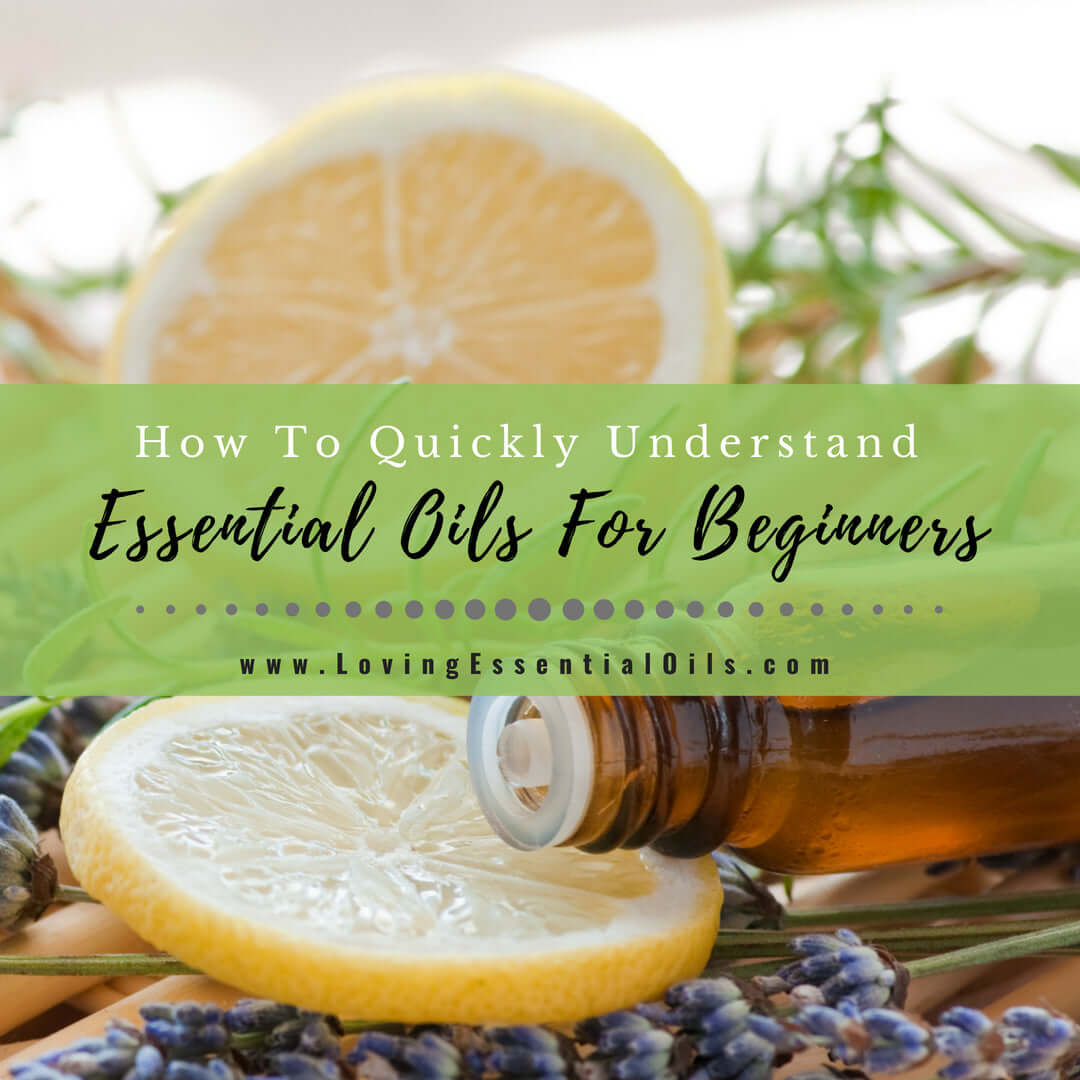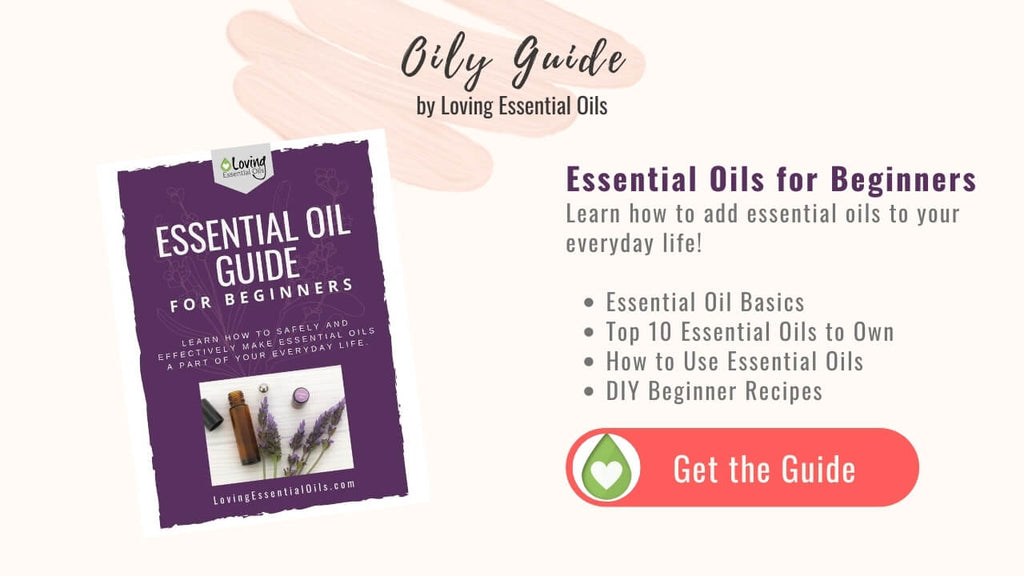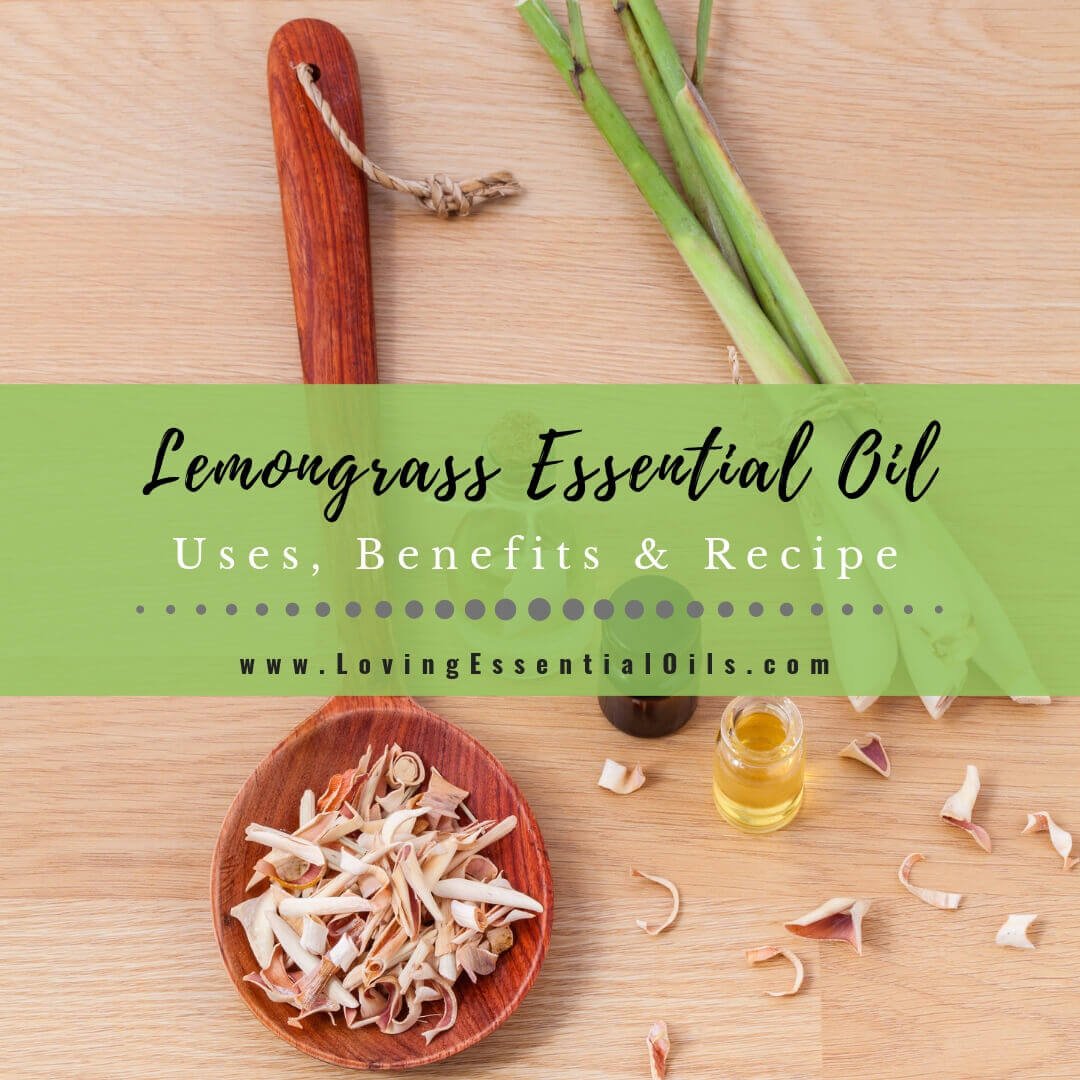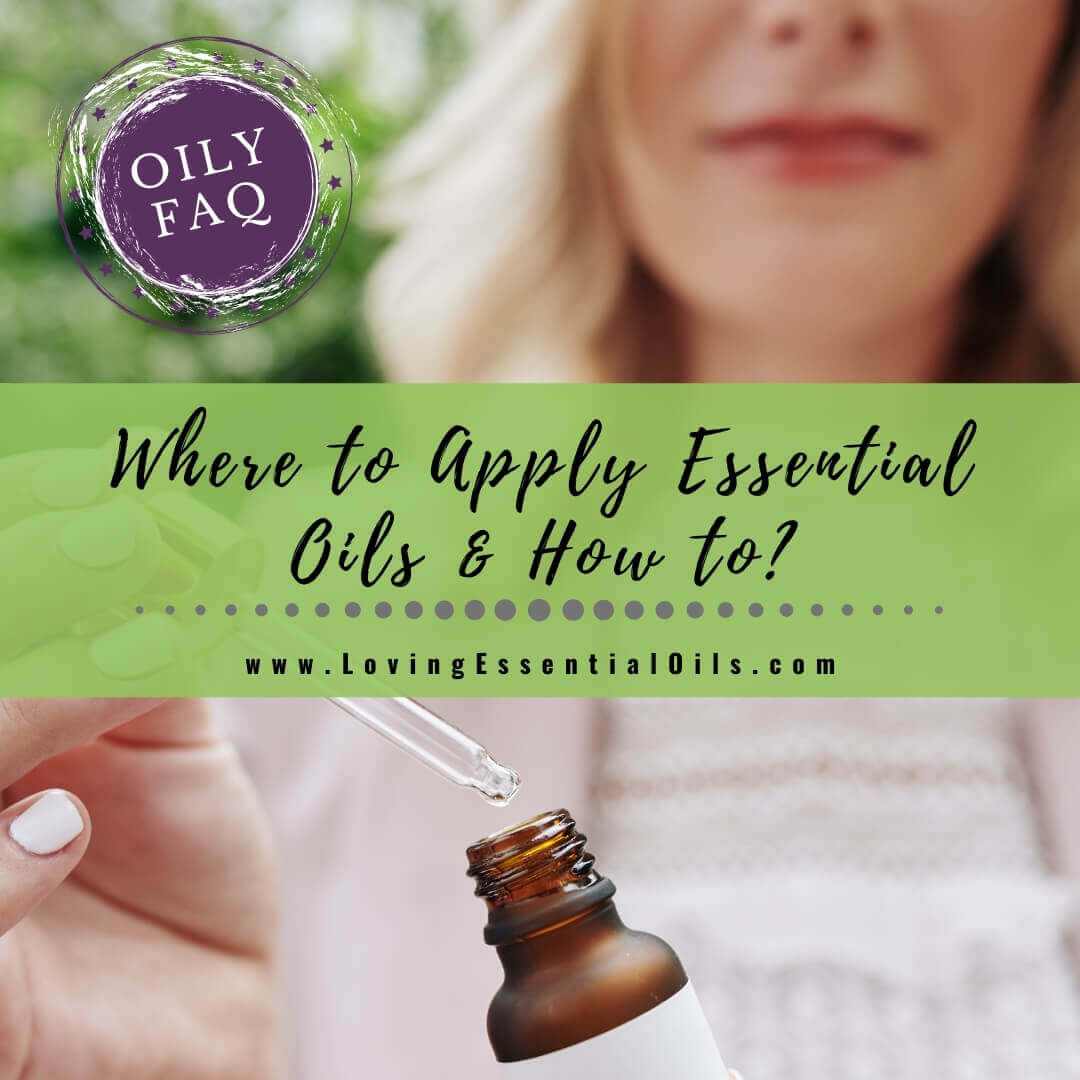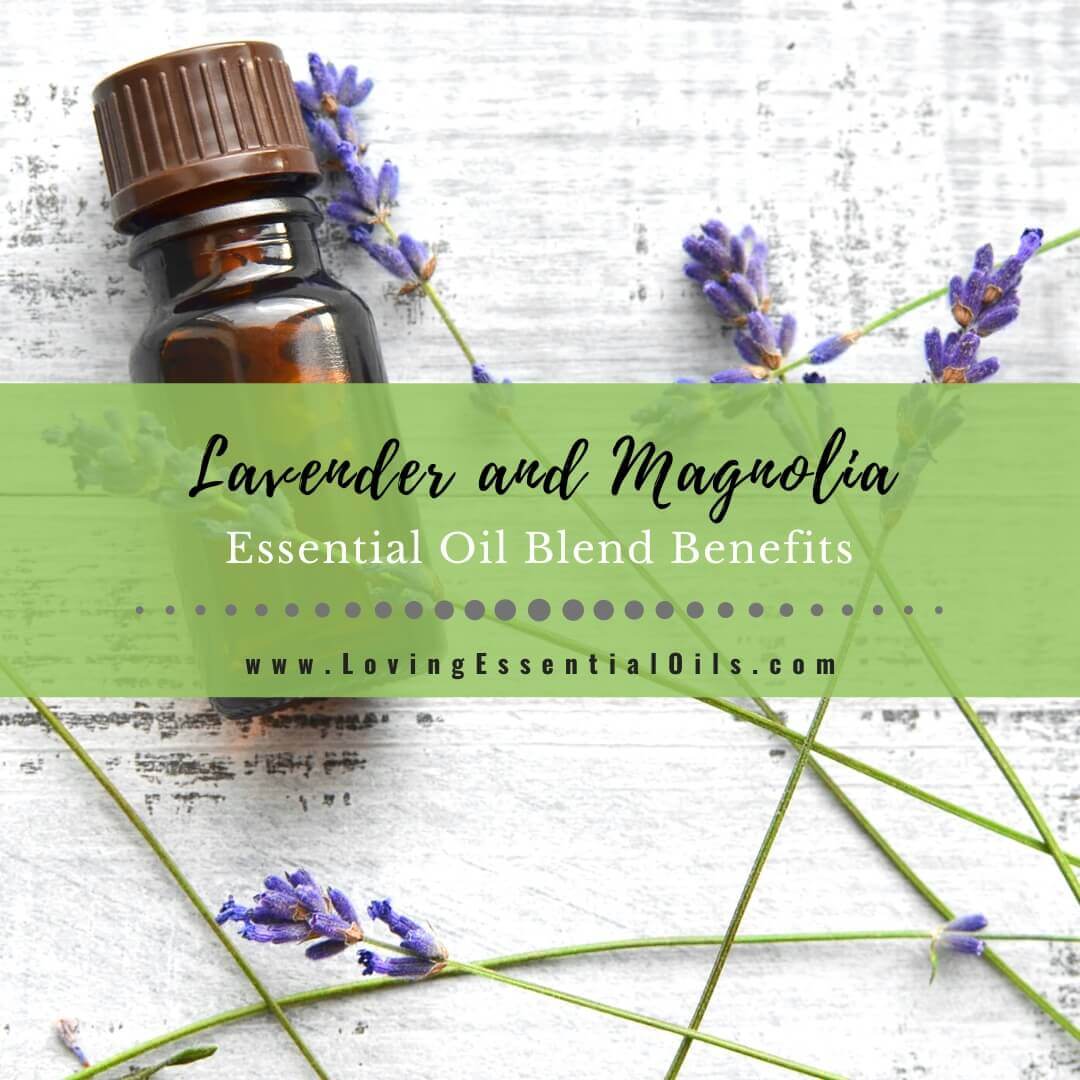At Loving Essential Oils, we love helping new oil users! We understand there is a learning curve to using essential oils and would love to help guide you through it. Here you will find out how to quickly understand essential oils for beginners.
We have answered 20 important frequently asked questions many beginners have. We are so honored to have you here and are excited to answer your burning questions! If you are new to our site and essential oils, be sure to get our Beginners Guide.
Essential Oils for Beginners Guide
Learn all about Essential Oils in this Beginner's Guide and how to use them safely and effectively. Written by Jennifer Lane, Loving Essential Oils Owner & Certified Aromatherapist:
1. Where Do Essential Oils Come From?
The earth is filled with different plants that play a vital role in producing oxygen, food, creating habitats and regulating water.
Within the seeds, stems, bark, roots, wood, needles, flowers and fruit of these wonderful plants, essential oils can be found.
For thousand of years people have been using plant parts for health solutions, beauty treatments, religious ceremonies and burials.
So, if you have ever wondered where essential oils come from... they are all around us.
The amount of essential oil each plant produces varies greatly depending on many factors. Some include the time of day, the time of year, climate and environmental conditions.
2. How Do Essential Oils Help Plants?
Essential oils are found in different parts of living plants. Essential oils will vary from plant to plant, or species to species. Here are some ways they may help plants:
- Give a plant its distinct smell
- Protect plants by keeping insects and pests away.
- Play a role in plant pollination
- Resist microbial attack
- Assist during periods of low nutrition
- Protect against temperature extremes
- Helps the plant heal itself when injured
3. How Are Essential Oils Made?
There are several methods for extracting essential oils from plants. Each method requires care and caution to extract only the highest quality essential oil. This ensures that the natural benefits of the plants are preserved.
Producing a high quality essential oil starts with the right timing.
For example, jasmine must be harvested at early in the morning in order to preserve its aromatic compounds, before the buds have fully opened. Once they have blossomed, the flowers rapidly loss their aromatic compounds.
It is crucial that the correct plant part is harvested when preparing a plant for distillation.
The Corandrum sativum plant produces 2 kinds of essential oils that are completely different in chemical makeup. One is cilantro essential oil, it is derived from the leaves of the plant. Coriander is the other, it is derived from the seeds of the plant.
Once the plant part has been harvested, the distillation process must start quickly before the plant loses its potency. The distillation process separates the essential oils from the plant part to make a usable oil.
The most common essential oil extraction methods are steam distillation and cold pressed (aka expression).
With steam distillation, heated steam and pressure are used to separate essential oils from their plant parts.
Cold pressing is another popular distillation method. Typically it is used to produce citrus essential oils from the rinds and peels of citrus fruits.
Did you know it takes approximately 50 grapefruit peels to create one 15 ml bottle of the essential oil?
Some other essential oil extraction methods are CO2 extracted oils and solvent extracted absolutes. For a more in depth look at the extraction processes, visit NAHA.org.
Cutting corners during any part of the production process may result in a lower quality essential oil. A lower quality oil will be less effective and may even be harmful.
4. Why Is It Important For Essential Oils To Be Tested?
Once essential oils have been carefully created, they must go through a quality check for these main goals:
- Verify potency
- Ensure purity
Two common test essential oils should go through are gas chromatography and mass spectrometry to help producers analyze essential oil composition and chemical makeup.
If you have an oil brand that you buy from, the company should have these tests available on their website or per customer request.
Gas chromatography (GC) identifies what chemical compounds are in each essential oil and the level they appear.
Mass spectometry (MS) analyzes the makeup to identify the different aromatic compounds of an essential oil.
Once an essential oil batch has been thoroughly tested to ensure that it is pure and potent without fillers or containments that would effect the quality or safety of the oil.
Unfortunately, not all essential oil companies follow the meticulous process that is required to offer high quality essential oils. Cutting costs, saving time and not testing produce poor quality oil.
5. How Can Essential Oils Help Me?
Essential oils offer protective, regenerating, and immune-strengthening properties of plants. They have the potential to affect every cell of your body. Here are some benefits you can obtain:
- Promotes relaxation and calmness
- Uplifts mood
- Decreases stress and tension
- Improves skin appearance
- Support healthy digestion
- Protect against environmental and seasonal threats
- Supports healthy immune system
- Repel insects
- Support healthy muscle and joints
Essential oil benefits depend on the chemical constituents of each oil.
6. How Do I Use Essential Oils?
The two main ways to use essential oils are aromatically & topically.
Aromatic application simply means smelling the aroma of essential oils to receive therapeutic benefits. It is a powerful way to affect memory, hormones, and emotions. It involves the olfactory system and helps manage mood and emotions.
Some ways to enjoy the aromatherapy:
- Inhale directly from the bottle
- Place a few drops on a tissue or cotton ball
- Use an aromatherapy diffuser
- Create a nasal inhaler and use as needed
- Place a few drops on a diffuser necklace and wear around neck
Read more about diffusing essential oils and get our FREE 150 diffuser blend guide.
Topical application is an easy and effective way to enjoy the benefits that essential oils offer. Use them topically by applying them to the skin. You can apply to specific areas of your body to receive targeted benefits.
For example, to promote healthy breathing, apply oils to your chest and neck. To soothe sore muscles and joints, apply oils to the muscles and joints that ache.
7. Do Essential Oils Need To Be Diluted When Applying To Skin?
Yes, essential oils are highly concentrated, it is recommended to dilute prior to topical application.
Essential oils are volatile, this just means they evaporate quickly when exposed to air. This evaporation process is slowed way down if you dilute essential oils in carrier oils. This allows them more time to be absorbed into the skin.
Plus, you can apply them easier to a larger area because you can spread them further when applying them on the skin. Diluting also lessens the chance of having skin reactions or irritations.
8. What Is A Carrier Oil?
Carrier oils carry the essential oils into the skin, this means you can use less essential oil. This saves you money but does not lessen the effectiveness of the essential oil. Isn't that wonderful!
Plus, adding a carrier oil also gives you all the benefits that the carrier oil offers. So now you can see why diluting essential oils is a no brainer right?
Lets recap the 6 benefits of diluting essential oils with a carrier oil:
- Essential oils evaporate way slower, giving them time to absorb
- Lessens chance of skin reactions or irritations
- Saves you money because less essential oil drops are needed
- Makes spreading them on skin easier
- Improves the effectiveness of essential oils
- You get the added benefits the carrier oil offers
Here are some carrier oils that can be used, click on oils for a full profile:
- Jojoba oil (wax)
- Sweet Almond Oil
- Grapeseed Oil
- Virgin Coconut Oil
- Fractionated Coconut Oil
- Argan Oil
- Rosehip Oil
- Avocado Oil
- Shea Butter
9. Where Do I Apply Essential Oils?
Essential oils can be applied to almost every body part with a few exceptions. You must avoid eyes, inner ears, inside nose, or other orifices.
Also remember that facial tissue is delicate so use caution when applying oils to face and be sure to dilute well before using.
Apply essential oils to the location where you need them. Have a sore neck? Massage them onto neck. Upset tummy? Apply to abdomen. Yes... it really is that simple. Always remember to dilute too.
If using for the aromatic benefits, you can apply to chest or wrists. Like if using lavender before bedtime to help you sleep, mix 1-2 drops in a teaspoon of jojoba oil and apply to upper chest. You will be able to inhale the aroma and fall asleep fast.
10. Can Essential Oils Be Used Internally?
Yes, some essential oils can be ingested (swallowed) and may even be labeled as such. Essential oils are highly concentrated and extremely potent so caution is a must.
Here at Loving Essential Oils, this is not a method of use we explore because there are just too many safety factors to consider.
11. Are Essential Oils Safe For Children?
There are some essential oils that can safely be used on children, and there are some that should be avoided.
Children are smaller and more at risk of toxicity. Their metabolism is not as effective as adults. Their skin is more sensitive too, and they are more prone to breathing problems.
Before using essential oils on a child, you should research and verify the oil is safe to use. It is recommended that essential oils are not used on children under 2 years old.
Check out our Ultimate Essential Oil List, it notes essential oils that are OK for kids.
12. Are Essential Oils Safe To Use During Pregnancy?
Certain essentials oils are considered too powerful for use during pregnancy so there are some essential oils that should be avoided.
Some essential oils can stimulate the production of certain hormones and can encourage bleeding.
Check out our Ultimate Essential Oil List, it notes essential oils that must be avoided while pregnant or breastfeeding. Please consult your physician before using essential oils while pregnant or lactating.
13. Are Essential Oils Safe To Use On Animals?
At Loving Essential Oils we do not explore the use of aromatherapy and essential oils for pets, you can view this PDF on Animal Aromatherapy from National Association for Holistic Aromatherapy
14. Do Essential Oils Expire?
Yes! It is a myth that essential oils do not expire. Here is what Robert Tisserand recommends:
If you time it from the moment of distillation, you have to know when that was, and most of the time we don’t know that. And, an essential oil in a full, unused bottle will stay fresh for a long time. So – start the clock when you first open the bottle, and use the following guideline for essential oils that are refrigerated:
Citrus fruit, neroli, lemongrass, frankincense, tea tree, pine and spruce oils
1-2 years
Virtually every other essential oil
2-3 years
Sandalwood, vetiver, patchouli
4-8 years
For non-refrigerated oils, halve these numbers, especially in warm climates.
15. How Should Essential Oils Be Stored?
Essential oils must be stored in dark colored glass bottles with the lid securely closed.
Exposure to light, oxygen, and heat causes chemical changes to the oil over time. This can lead to skin irritations and ineffective oils when used.
All oils you are not actively using in your daily routine should be kept cold. The ideal temperature is 65°F. You can read more about this subject from Robert Tisserand.
16. Why Is The Botanical Name of Essential oils Important?
When buying essential oils, you will find that many plants have the same common name.
Using the common name could cause you to buy the wrong oil. This is why it is crucial to know the botanical name of the oil you are purchasing.
For example, you can say eucalyptus oil but knowing the botanical name would tell you the exact type of eucalyptus oil, eucalyptus radiata vs eucalyptus globulus vs eucalyptus smithii. While they are similar, there are some differences.
When purchasing essential oils, the labels should clearly state the botanical name and the common name so you know exactly what you are buying. Our list of essential oils has 150 oils with their botanical names.
17. What Essential Oils Should I Start With?
Start by purchasing a few essential oils and slowly add more as you are able. Starting with a hand full is really best to avoid overwhelm. It also gives you the chance to really get to know each oil you have.
I have a confession to make, when I first started with essential oils over 6 years ago, I bought a HUGE collection of them. I got so overwhelmed that it negatively impacted my use... because I wasn't sure where to start, the oils just sat collecting dust.
Now when I get a new oil I like to spend a full day getting to know it. I will place several drops on a tissue, diffuser necklace, or nasal inhaler and smell it throughout the day. I jot down how it makes me feel when I smell it, as well as anything it reminds me of. You can get printable essential oil cards here to write down your experience.
Here are the first 6 recommend essential oils to buy:
- Lavender essential oil (Lavandula angustifolia)
- Peppermint essential oil (Mentha piperita)
- Lemon essential oil (Citrus limon)
- Tea tree essential oil (Melaleuca alternifolia)
- Orange essential oil (Citrus sinensis)
- Eucalyptus essential oil (Eucalyptus radiata)
Plant Therapy has a really great set that includes each of these oils on the list above, plus it comes in a cute box and is excellently priced, click the picture to learn more here.
18. What Essential Oils Should I Buy?
There are many essential oil companies out there, it can be overwhelming, especially to a new user. Frequently, new users go by cost, which is not a good indicator of essential oil quality.
There are many great essential oil companies out there, you just have to find them.
I especially love Barefut Oils, this company always has a great deal going. Not only that but they offer only high quality oils with testing documentation PLUS it is ran by an aromatherapist.
One high quality essential oil company I use is Plant Therapy. Their oils are well documented and expertly labeled. I also love that they clearly mark their oils "KidSafe" so there is no guessing if they are safe to use on kids 2-10 years old.
Here they offer a fabulous starter set that is low cost and it includes the exact 6 essential oils that we recommend for new users.
Edens Garden also has excellent quality oils that are well documented and labeled well. They also note on the bottle if the essential oil is child friendly.
I think it isn't necessary to be dedicated to only one essential oil company, ultimately the choice is in your hands.
19. How Can I Be Sure I Am Using Essential Oils Safely?
If you follow some simple safety tips then essential oils are very safe to use. Here are the basics:
-Less is more due to the extreme potency of essential oils
-Best practice is to dilute all essential oils with a carrier oil prior to applying topically to avoid unwanted irritations and reactions
-Keep all essential oils out of he reach of children, they can be poisonous if swallowed
-People with asthma and seasonal or skin allergies should use caution with essential oils, immediately stop use of any oil that exacerbates these issues
-Know what essential oils are phototoxic and avoid using when 12 hours before sun exposure
-Keep oil bottles closed tightly and store in a cool, dark place
-Do not use essential oils on babies or pets unless you have guidance from a trained aromatherapist or doctor.
-Consult your physician before using essential oils if you are pregnant/lactating, epileptic, diabetic, undergoing cancer treatment, on blood thinners or under a doctor's care. There are essential oils that can be dangerous to these individuals
20. How Can I Use Essential Oils Everyday?
If you are new to essential oils, then you may still feel awkward trying to use them everyday. You do have to be intentional in your use, at first, until you get into the habit of using them and looking to them first.
Initially, it will seem like work to use them, but as you go about your day, think about how essential oils could be incorporated.
Let start with waking up... most of us need a little time to get moving in the morning, how about diffusing peppermint or orange essential oils to pep you up.
Time for showering... bring your oils in there too. You can add a few drops of lemon on a washcloth or on the shower floor. Or make foaming body wash.
Not feeling well... have some aromatherapy inhalers ready for fast, all natural remedies.
Create some DIY recipes and makeover your beauty routine. Slowly replace your store bought items with homemade essential oil products.
Essential oils can be used for cleaning your home. Why clean with harsh chemical cleaners when you can get better results naturally. We have a complete guide dedicated to cleaning recipes.
These are only a few ideas to get you going but, don't worry, you are not alone on your essential oil journey.
Essential Oils for Beginners Guide
Learn all about Essential Oils in this Beginner's Guide and how to use them safely and effectively. Written by Jennifer Lane, Loving Essential Oils Owner & Certified Aromatherapist:
Share on Pinterest


